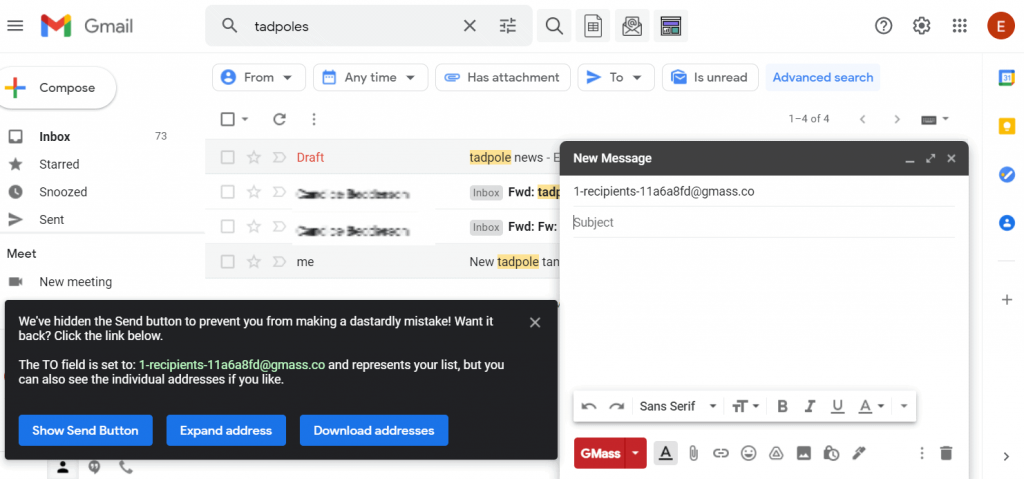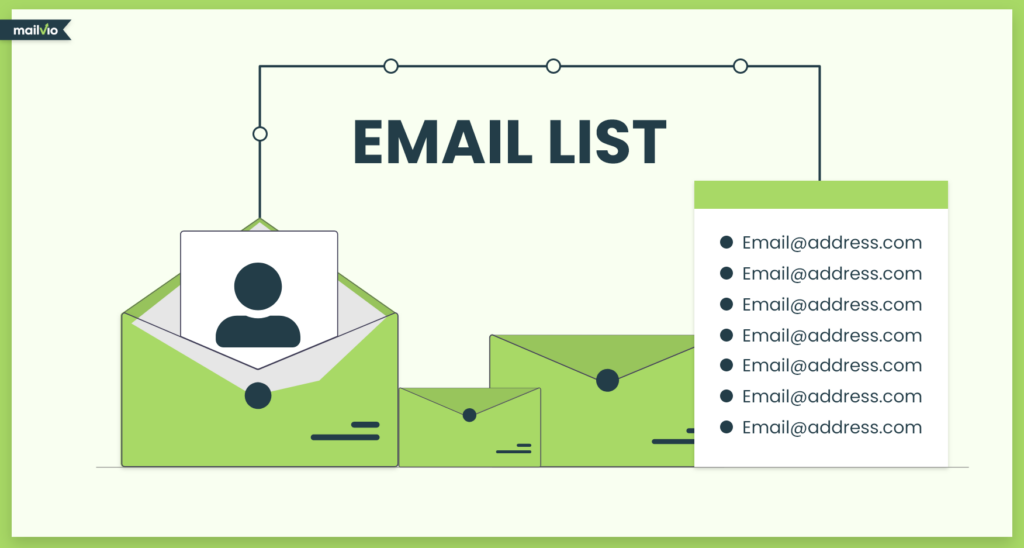When purchasing a Family Medicine email list, several key factors must be taken into consideration to ensure that you have high-quality, accurate and legally-compliant data that is effective for your marketing or outreach campaign. Here's the things you must be aware of: 1. Data Quality and Accuracy
Data source: Ensure that the data provider collects information from reliable and verified sources. This includes licensing bodies, medical directories, professional associations or opt-in databases. Email addresses for family medicine doctors' addresses should be appropriate up-to-date and tailored to your target audience.
Verification Process: Find out what the verification process is for your provider. The email list must be regularly cleaned and updated to remove inactive or incorrect email addresses. Validated emails improve deliverability and reduce bounce rates.
Segmentation Options : The list of options must allow segmentation by criteria like geographical location, the number of years of experience, size of a practice or a specific area (e.g. pediatrics, geriatrics, and preventive medicine). Segmentation allows for more customized and specific outreach, which increases engagement rates.
2. Legal Regulations
Data Privacy Laws Ensure that your list complies both with General Data Protection Regulations, (GDPR) which are in Europe and the California Consumer Privacy Act, (CCPA) which is in the U.S.A. To avoid penalties from regulatory authorities emails must be legally collected with consent.
CAN-SPAM Act Compliant: If your marketing via email is carried out within the U.S.A. ensure the list complies. Make sure to include clear opt-out options and stay clear of misleading subject lines and information in emails.
Opt-In Consent : Verify the email addresses we have collected were acquired through consent. Family medicine doctors consented to receiving promotional emails from third-party companies, which ensures that they are in compliance and decreasing complaints about spam.
3. Provider Reputation
A reputable provider: Choose a service provider who is known for providing high-quality and compliant data. Check out testimonials, reviews from customers and case studies to ensure the company is reliable and reliable.
Transparency. Providers should be transparent and transparent about the methods that they employ to collect data and the frequency at which they update it. This is a major warning if a company is unwilling to explain how they collect and use obtain data.
Customer Support - Find companies that have solid customer service. There may be a need for assistance with technical problems and list segmentation, or to make sure your list is in compliance with regulations.
4. Cost and Return on Investement (ROI).
Pricing models. There are different pricing options available, such as flat fees or subscription services. It is important to choose a pricing structure that's in line with your budget.
Refund and Replacement Policy: Reputable providers provide an option for refunds or replacement of incorrect or out of date emails. Make sure you understand all terms and conditions before you make a purchase.
Don't solely focus on cost. Although a list that is low-cost might be attractive, the result could be low deliverability as well as high bounce rates. Better to invest in high-quality lists that have more targeted and improved engagement rates.
5. Ownership, use, and ownership
Single Use and Multiple Use Make clear the purpose of the list. Lists that are able to be used in several campaigns will be more beneficial. This is especially true when you're planning to conduct continuous outreach.
Exclusive vs. shared lists: Determine if the list is yours solely or is being offered to other buyers. Exclusive lists have a lower chance of producing oversaturated audiences. They are also more likely to have higher engagement rates.
6. Data Format and Integration
CRM Compatibility. Make sure your email lists are in a format that is compatible with your CRM software or marketing tools (e.g. CSV, Excel). This will guarantee a smooth integration as well as a simple use.
Easy-to-use: Ensure that your list is well-organized and can be easily segmented or filtered based on criteria relevant to the campaign. This will allow you to streamline your targeting and message efforts.
7. Ethical Questions
Relevance of Outreach - Family doctors are often busy, which is why it's crucial to ensure that your outreach is relevant to their profession. Avoid generic and irrelevant messaging. This could hurt your brand's reputation and lead to low engagement rates or complaints about spam.
Avoid Spam Make sure to send emails with care and avoid sending excessive amounts of. Sending too many emails to recipients or offers that aren't relevant can result in unsubscribing from your mailing list, spam reports or the reputation of your sender being damaged.
Conclusion
Concentrate on the quality of data as well as compliance with legal regulations, and the reputation of providers when buying an email list for Family Medicine to ensure that your outreach efforts will be productive. Look for validated, segmented data that is in compliance with privacy laws and matched to your intended audience. By sending specific messages and investing in a a list of high quality that you can increase your customer engagement and boost the return on investment from marketing. Check out the most popular family medicine email list for more recommendations.

What Should I Consider When Buying An Oncologist Email List?
You should consider the following factors before purchasing an email list for your oncologist. These can assist you in making sure that your list is targeted, top-quality and legally legal. Here are some key factors to think about: 1. Quality and Accuracy of the Data
Source of Data: Check that the data is coming from reliable and reputable sources like medical directories, professional associations or databases of healthcare. Avoid lists sourced not verified or are from unknown sources as they may contain outdated information.
Verification Method: List providers must adopt a rigorous process to confirm that the email addresses they supply are accurate, valid and current. The list provider should regularly cleanse and update the list to eliminate duplicate, incorrect or inactive contacts. This increases the rate of deliverability.
Segmentation Options: A good oncologist list should offer segments to choose from. Being able to filter the list by subspecialties (e.g., pediatric oncology, surgical oncology, hematology-oncology), geographic location, years of experience, or institution allows for more targeted outreach, increasing the likelihood of engagement.
2. Legal Regulations
Data Privacy Regulations : Ensure your email list is compliant with data privacy laws, which include the General Data Protection Regulations (GDPR) for Europe and the California Consumer Privacy Acts (CCPA) for the U.S. and other regulations. Email addresses must be gathered and processed legally, while preserving the privacy of data and consent.
CAN-SPAM Act Compliance: For U.S.-based campaigns, ensure that your list is compliant with the CAN-SPAM Act, that governs commercial email messages. Include an opt-out feature in your emails. Use precise subject lines. Don't mislead recipients. Infractions can result in fines and can damage your reputation.
Opt-In Consent - Make sure that the email addresses in the list were collected by consent. Oncologists have to consented in order to be able to receive marketing material. It is a way of ensuring that privacy laws are being followed and reducing any risk for legal concerns or complaints about spam.
3. Provider Reputation
Reputable supplier: You should only buy your list from a company that is reputable within the industry. You can verify the legitimacy of a company by looking at their history, testimonials, reviews as well as case studies. Established companies have a greater chance of being able to provide accurate and legally-compliant information.
Transparency: The provider should be transparent about how the data is collected and how often it is updated and what verification techniques are used. A lack of transparency can be a sign of caution and can indicate poor data.
Customer Support: Select an organization that has responsive customer service if you need help in completing the list, or if you have any queries regarding segmentation, integration or compliance.
4. Cost and Return on Investment
Pricing Structure: Ensure to comprehend the pricing structure. Does it depend on of contacts or numbers? Or is it dependent on subscriptions, flat fees, or other factors. Think about how the price is aligned with your marketing budget and expected ROI (ROI).
Refund and Replacement Policy: A reputable service will offer a refund policy or a replacement policy for invalid emails or outdated email addresses. To protect your purchase ensure that you are aware of the terms.
Value for Money: Concentrate on more than cost. If you can find a list that is less expensive than you think, it could be tempting. However, if that list results in poor delivery or low participation, it could harm your campaign. Make sure the data is accurate and relevant.
5. Data Use and Ownership
Clear up whether you're using the list only for only one-time use or for continuous use. Possessing a list could provide greater flexibility and benefits when you plan multi-campaigns.
Exclusive vs. shared lists: Determine if this list is only for you or shared with several buyers. Exclusive lists can be more beneficial since they can reduce the exhaustion of your audience, leading to more engagement.
6. Data Integration and Format
CRM Compatibility: Ensure that the list can be easily transferred to your customer relationship management (CRM) system or marketing software. The list must be delivered in a format that is easy to integrate, like CSV.
Simple Segmentation The CRM you use should allow you to segment and manage the list. If you can quickly filter using criteria such as specialties in oncology or geographical area, it will help your campaigns to be more efficient.
7. Ethical Aspects
Relevance of messages - Oncologists, as specialists, have very busy schedules. You should tailor your message to their needs or interests. This could be medical equipment or continuing education. Inappropriate emails can lead to a poor brand reputation and low engagement.
Beware of spam: Don't send unsolicited emails or excessive amounts of email. This can lead to complaints regarding spam. To keep your audience interested, you should send out emails frequently.
Conclusion
When purchasing an oncologist's email list, consider accuracy of data legal compliance, as well as provider reputation. Be sure the list is segmented, properly checked, and customized to your target audience. Consider these factors to create an efficient and reliable outreach strategy. Take a look at the recommended oncologist email list for site tips.
